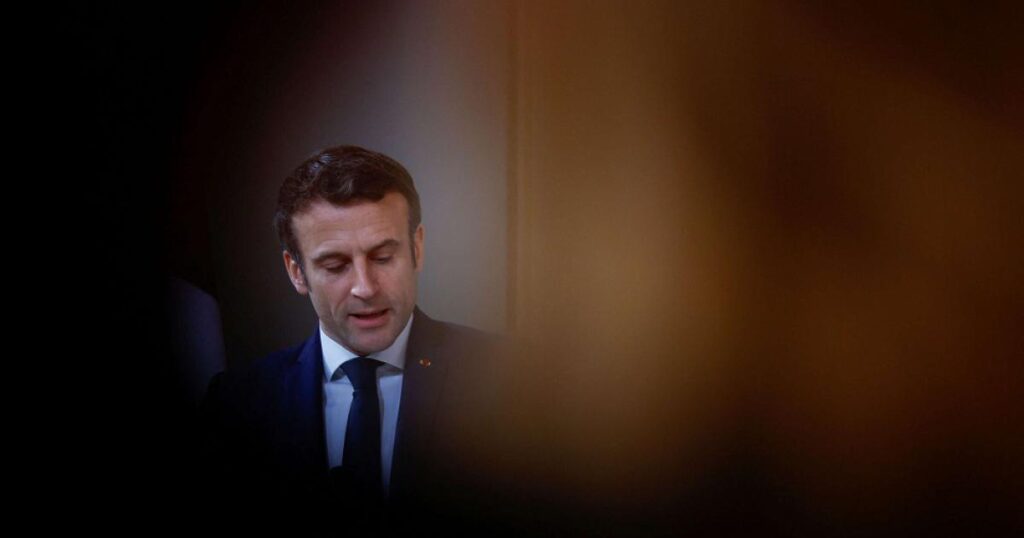PARIS – Human rights organisations have urged French President Emmanuel Macron, who announced at the Elysee Palace on Sunday that he will visit Algeria next week to re-establish the two countries’ partnership after months of tension, not to cover up the Algerian regime’s “violation” of human rights and deterioration of the situation of freedoms, as well as “His (the regime’s) deviation toward authoritarianism.”
Macron had previously received harsh criticism for France’s backing for the Chadian military council’s chairman, Mohamed Idriss Deby Itno, who succeeded his father, Idriss Deby, who was killed at the front during a rebel group attack.
There are concerns that the French president, who has already been accused of applying double standards when dealing with military coups in Africa, may condone human rights crimes in order to protect his country’s interests, which may occur during his visit to Algeria.
Macron enraged Algerians during the height of the popular movement that ousted the Bouteflika regime in 2019, as well as those who gained power to follow him, notably current President Abdelmadjid Tebboune, as he denounced the authorities’ use of force against protestors.
It is unclear whether Macron, who is eager to end tensions with Algeria following military setbacks in the African Sahel region, will raise with his Algerian counterpart issues of human rights and freedoms, including the detained activists, or will avoid doing so in order not to jeopardise the visit’s objectives.
Macron is in Algeria with more than one contentious file, including the file of colonial memory and his statements before the recent presidential elections about the Algerian regime’s exploitation of “memory proceeds,” which will almost certainly make him indispensable in raising the issue of human rights.
In an open letter to Macron on Saturday, thirteen human rights groups expressed their “hope” that the visit “will be productive for the two nations intimately linked by history, geography, culture, and language, as well as all the exchanges and partnerships that have existed since independence.”
“Mr. President, there is a crucial subject that should not be overlooked during the visit: Algeria’s present human rights situation,” the letter said.
The groups denounced “about 10,000 arrests, followed by over a thousand pretrial detentions, in violation of the penal law, which the dictatorship has implemented since the beginning” of the pro-democracy rallies in February 2019.
The letter emphasised that “the Algerian authorities’ reaction to public aspirations was an unparalleled oppressive approach with its terrorist tactic to silence peoples living in estrangement from the leaders of the existing political system.”
The organisations that signed the letter emphasised that “some of the gains made after decades of struggle over freedom of expression, organisation, demonstration, press, and political activity are in sharp deterioration, and are on the verge of extinction,” and that “all forms of expression outside the regime’s line are systematically suppressed.”
She emphasised that “Algerians in France, but also French citizens of Algerian heritage, fear reprisals on their visits to Algeria, which restricts their freedom of movement.”
In addition, the letter added, “Travelers who had committed no wrong other than expressing their views were imprisoned and barred from leaving Algerian land. Political activists and journalists resident in France are being tried before the Algerian judiciary, raising anxiety among their Algerian relatives.”
“Mr. President, you cannot condone the Algerian regime’s authoritarian deviation,” the organisations said, adding, “We, the proliferation organisations, are deeply concerned about the evolution of the Algerian political system towards authoritarianism, and we have a duty to express our deep concern to you about the dangerous situation on fundamental freedoms in Algeria under the regime.”
Macron’s visit to Algeria comes after a period filled with symbolism, particularly the commemoration of the sixtieth anniversary of the signing of the Evian Accords (March 18, 1962), which ended a seven-year war between Algerian revolutionaries and the French army, and Algeria’s independence (July 5, 1962) after 132 years of French colonisation.
Paris and Algeria hope to put an end to a series of disagreements and tensions that erupted in September 2021, when Macron accused Algeria’s “political-military” regime of continuing the “memory revenue” policy regarding the independence war and questioned the existence of a “Algerian nation” prior to French colonialism.

